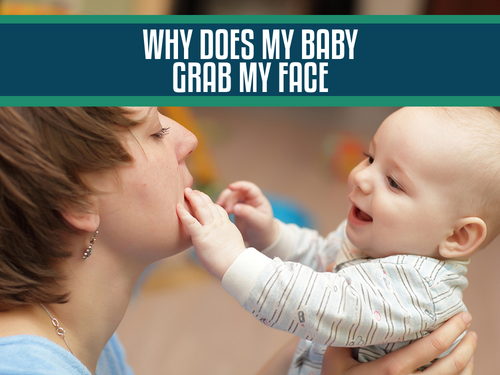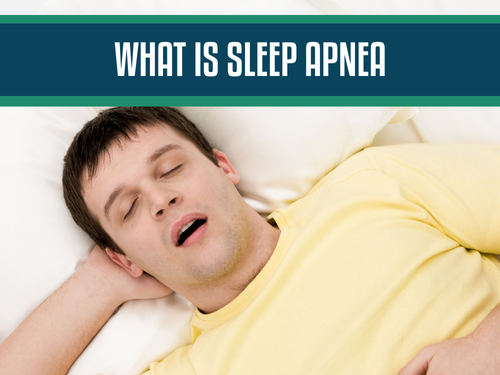Parabens in Shampoo: Understanding Their Role in Cosmetics, Sulfates, and Safer Alternatives

Yes—finger plays, clapping games, and dance routines that use hand gestures all help. Combine rhythm and repetition for deeper learning.
Send home simple activity ideas, kits, or worksheets. Offer short instructions and encourage family involvement. Regular practice builds lasting progress.
Try origami, sticker scenes, stringing pasta, or painting with Q-tips. Crafts that use small pieces build precision and control.

When choosing a shampoo, you’ve likely come across terms like paraben-free and sulfate-free. But what exactly are parabens, and why do they spark so much debate in the beauty industry? Parabens are a class of synthetic preservatives widely used in cosmetics and personal care products to prevent bacterial growth and extend shelf life. However, concerns over their potential health risks—such as hormone disruption—have led many consumers to seek paraben-free alternatives.
In this article, we’ll explore the role of parabens in shampoos, how they compare to sulfates (another controversial ingredient), and the best safer alternatives available. Whether you're looking to switch to a cleaner hair care routine or simply want to make informed choices, this guide will break down everything you need to know.
Common Types of Parabens

Parabens are widely used preservatives in hair care and cosmetic products, preventing the growth of harmful bacteria, mold, and yeast. The most common types include:
1. Methylparaben
Methylparaben is a short-chain paraben frequently found in shampoos, conditioners, lotions, and facial cleansers. It is highly effective at preventing fungal and bacterial contamination, extending the shelf life of products. Due to its small molecular size, it is easily absorbed by the skin, making it a common choice in skincare formulations.
2. Propylparaben
Propylparaben is a medium-chain paraben often combined with methylparaben for broader antimicrobial protection. It is commonly used in hair sprays, deodorants, and body creams. Propylparaben is more effective against mold and yeast than methylparaben, making it a key component in many cosmetic preservative systems.
3. Butylparaben
Butylparaben is a long-chain paraben known for its strong antifungal properties. It is used in products like lipsticks, sunscreens, and moisturizers to prevent microbial growth. Because of its larger molecular structure, it has a lower absorption rate compared to shorter-chain parabens, but it is still widely used for its preservation benefits.
4. Ethylparaben
Ethylparaben is slightly larger than methylparaben and is commonly found in creams, hair conditioners, and makeup. It enhances the stability of formulations by preventing bacterial contamination. Ethylparaben is often used alongside other parabens to create a synergistic effect, improving overall preservation efficiency.
Why Are Parabens Used in Shampoo and Conditioner?
Shampoos and conditioners contain a combination of water, oils, botanical extracts, and other organic ingredients that create an ideal environment for bacteria, mold, and fungi to thrive. Parabens are widely used as preservatives in these products to prevent microbial growth, ensuring they remain safe and effective for a longer period.
Without preservatives like parabens, hair care products could become contaminated within weeks, leading to spoilage, unpleasant odors, and potential risks to users, such as scalp infections or irritation. Parabens help extend the shelf life of these products, allowing consumers to store and use them safely without concerns about harmful microbial contamination.
Are Parabens Safe?
The safety of parabens has been a subject of scientific debate for years. Regulatory bodies such as the U.S. Food and Drug Administration (FDA) and the European Commission’s Scientific Committee on Consumer Safety (SCCS) have reviewed available research and concluded that parabens are safe when used in low concentrations in cosmetics and personal care products. The SCCS has set maximum concentration limits to ensure their safety.
However, some studies have suggested potential health risks associated with parabens, particularly due to their ability to mimic estrogen, a hormone linked to breast cancer development. This has led to concerns about their long-term effects, prompting some manufacturers to develop paraben-free formulations as a precautionary measure.
How Are We Exposed to Parabens?
Parabens are commonly found in a wide range of personal care products, including shampoos, conditioners, lotions, deodorants, and makeup. When applied to the skin or scalp, parabens can be absorbed into the body. Research has detected parabens in urine, blood, and even breast tissue samples, suggesting that they can enter the bloodstream and accumulate over time.
Repeated exposure to parabens through daily use of multiple products may contribute to overall body levels. While the body can break down and eliminate parabens, concerns remain about prolonged exposure and its potential effects on hormonal balance.
Are Parabens Bad for Hair?

Parabens are not just a concern for human health, but also for hair health. Some potential effects of parabens in shampoo include:
1. Scalp Irritation
Parabens, particularly methylparaben and propylparaben, can cause irritation in people with sensitive or allergy-prone skin. When used regularly, they may lead to symptoms like redness, itchiness, flakiness, and even contact dermatitis. Those with conditions like eczema or psoriasis may be especially vulnerable to these effects.
2. Hair Damage and Weakening
Although there is limited scientific evidence directly linking parabens to hair damage, some people report that prolonged exposure weakens hair strands. This could be due to the potential drying effect of certain preservatives, which may strip natural oils from the scalp, leading to increased brittleness, split ends, and breakage over time.
3. Hormonal Disruption and Hair Growth Concerns
One of the most significant concerns surrounding parabens is their ability to mimic estrogen, a hormone that plays a crucial role in various bodily functions, including hair growth. Some researchers suggest that parabens can disrupt the endocrine system, potentially leading to hormonal imbalances that might contribute to issues like hair thinning, slower growth, or even premature hair loss. However, more research is needed to fully understand the extent of these effects.
Parabens in Cosmetics and Personal Care Products

Parabens are synthetic preservatives widely used in cosmetics and personal care products to extend shelf life by preventing the growth of mold, bacteria, and yeast. They are commonly found in a variety of beauty and hygiene products, including:
- Shampoos and Conditioners – Parabens help prevent microbial contamination in hair care products, ensuring they remain safe for use over time. They are often included in both rinse-off and leave-in formulas to maintain product integrity.
- Hair Masks and Styling Products – Deep-conditioning treatments, serums, and styling gels often contain parabens to preserve their effectiveness and prevent spoilage caused by exposure to air and moisture.
- Moisturizers and Lotions – Parabens are frequently added to creams, body butters, and lotions to prevent bacterial growth, especially since these products are often stored in warm, humid bathrooms.
- Makeup and Skincare – Foundations, mascaras, lipsticks, cleansers, and serums commonly include parabens to maintain their stability and prevent contamination from repeated use.
- Deodorants – Many antiperspirants and deodorants contain parabens to prevent bacterial buildup, which can lead to spoilage and reduce the product's effectiveness.
Alternatives to Parabens in Hair Care Products
As consumer demand for paraben-free products grows, manufacturers have developed alternative preservatives that help prevent mold growth without the risks associated with parabens.
Common Paraben-Free Preservatives

- Phenoxyethanol – A widely used synthetic preservative that effectively prevents bacterial growth in hair care products. It is considered a safer alternative to parabens and is commonly found in shampoos, conditioners, and styling products. However, it should still be used in low concentrations, as excessive amounts may cause skin irritation in some individuals.
- Sodium Benzoate – A naturally occurring compound found in cranberries, prunes, and apples, sodium benzoate is often used as a preservative in both cosmetics and food products. It is effective at inhibiting fungal growth but works best in formulas with a slightly acidic pH. Many natural and organic hair care brands use it in combination with other mild preservatives.
- Benzyl Alcohol – A naturally occurring ingredient found in essential oils such as jasmine, ylang-ylang, and tea tree oil. It serves as both a preservative and a fragrance component in hair care products. It is effective against bacteria and fungi, making it a popular choice for natural and organic formulations. However, in high concentrations, it can be drying to sensitive scalps.
Natural Alternatives

For those who prefer completely natural options, some hair care brands use plant-based ingredients with antimicrobial and antioxidant properties to extend shelf life:
- Essential Oils (Tea Tree Oil, Rosemary Oil, Lavender Oil) – These oils have inherent antibacterial and antifungal properties, making them effective natural preservatives. Tea tree oil, in particular, is known for its strong antimicrobial action, while rosemary oil also supports scalp health by promoting circulation and reducing dandruff.
- Vitamin E (Tocopherol) – A powerful antioxidant that helps prevent the oxidation and rancidity of oils in hair care products. While not a broad-spectrum preservative, it is often used in combination with other natural antimicrobials to maintain product integrity.
- Grapefruit Seed Extract (GSE) – A plant-derived preservative that contains natural antimicrobial compounds. It is often used in organic and homemade hair care formulations due to its ability to inhibit mold and bacterial growth. However, its effectiveness varies depending on formulation and concentration.
You May Also Like: What Causes Split Ends? Understanding Hair Split, Split End Culprits, and Prevention Tips
Best Paraben-Free Shampoos and Conditioners

Many brands offer paraben-free shampoo and conditioner options that provide effective hair care without synthetic preservatives. These products are formulated with natural ingredients to nourish hair while avoiding harsh chemicals. Here are some of the best paraben-free hair care products:
1. Avalon Organics Biotin B-Complex Thickening Shampoo
This shampoo is designed to promote thicker, fuller hair with a blend of biotin, saw palmetto, quinoa protein, and vitamin E. It strengthens hair strands, improves scalp circulation, and supports healthy hair growth. Ideal for those with fine or thinning hair, it is free from parabens, sulfates, and harsh preservatives.
2. SheaMoisture Coconut & Hibiscus Curl & Shine Shampoo
A top choice for curly and wavy hair, this sulfate-free shampoo cleanses gently while enhancing natural curls. Infused with coconut oil, silk protein, and neem oil, it deeply hydrates, reduces frizz, and adds a healthy shine. The formula is free from parabens and artificial fragrances, making it ideal for sensitive scalps.
3. Maple Holistics Tea Tree Shampoo
This clarifying shampoo is perfect for those dealing with dandruff, scalp irritation, or oily hair. Tea tree oil helps to soothe itchiness and combat dandruff, while rosemary and lavender essential oils promote hair health. Free from parabens, sulfates, and artificial additives, it is a great natural option for maintaining a balanced scalp.
4. Puracy Natural Shampoo
Formulated with plant-based ingredients like coconut-based cleansers and vitamin E, this shampoo offers a gentle yet effective cleanse. It is safe for all hair types, including color-treated hair, and works to restore moisture and balance. With no parabens, sulfates, or synthetic fragrances, it is a great option for those looking for a clean, eco-friendly shampoo.
5. Burt’s Bees More Moisture Shampoo
Enriched with nourishing baobab oil and cupuaçu butter, this shampoo is designed to deeply moisturize dry and damaged hair. It gently cleanses without stripping natural oils and leaves hair feeling soft and hydrated. Like all Burt’s Bees products, it is made with natural ingredients and free from parabens, phthalates, and sulfates.
You May Also Like: How Often Should You Wash Your Hair? The Best Shampoo Routine for Healthy Hair
Frequently Asked Questions
How can I spot parabens in shampoo and conditioner?
To check if a shampoo and conditioner contains parabens, look for ingredients such as methylparaben, propylparaben, butylparaben, and ethylparaben on the label. Many beauty products now carry products labeled paraben-free, making it easier to find paraben-free hair care alternatives.
What is a paraben-free shampoo, and why should I use it?
A paraben-free shampoo is a hair care product that does not contain parabens as preservatives. Many people choose paraben-free products because of concerns that parabens may be absorbed through the skin and possibly linked to health effects such as hormonal disruption or even the development of breast cancer.
Are parabens harmful to human health?
There is no conclusive evidence to suggest that parabens are harmful at the levels used in cosmetic products. However, studies have found that parabens can be absorbed through the skin, leading some to question their potential risk to human health. Due to these concerns, many hair care brands now offer paraben-free products.
Should I switch to paraben-free products?
If you’re concerned about health and the environment, or if you have sensitive skin, you may prefer to use free hair care products that are free of parabens. Many brands now offer paraben-free shampoo and conditioner as safer alternatives.
You May Also Like: How to Prevent Split Ends: The Best Ways to Get Rid of Split Ends for Healthier Hair




